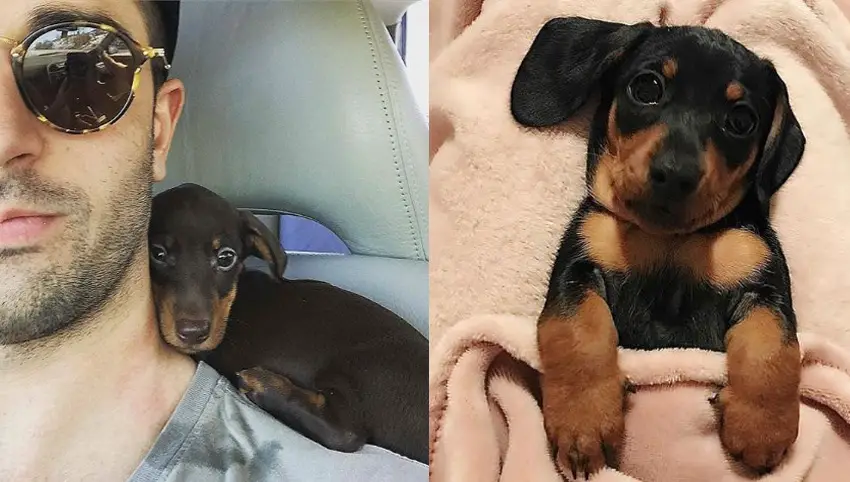Although your Dachshund is very hardy and odorless, you’ll still need to pay special attention to its cleanliness since you’ll be allowing it to live inside your home.
Apart from brushing and bathing, hygiene of nails, ears, teeth and eyes is also important.
Nails
Ears
Teeth
The eyes
Nails
Taking care of your dog’s nails is very important.
The best way to prevent them from becoming too long is to walk your dog. Rubbing against the ground will act like a file and keep them at the right length.
However, if your dog doesn’t get out much, as claw growth is constant, they’ll get in the way when he’s on the move.
Soak his claws in lukewarm water until the nails have softened; then trim them, taking care to remove only the dead part when looking at them against the light, to avoid injuring your Dachshund.
Use a special instrument, not those reserved for human use.
You can also choose to file them, but do so very gently. Remember to trim his nails every 2 weeks.
Dog nail clippers
Ears
Take special care of your Dachshund’s ears. They should always be perfectly clean.
Once every 2 weeks, prepare a solution of half water and half peroxide and massage his ears with it.
Dry the ears with cotton balls.
Another method is to wash the ears with cotton-wrapped chopsticks coated with a little almond oil.
Teeth
The best way to keep your Dachshund’s teeth healthy is to give him bones to gnaw on, and to feed him dry bread and hard cookies.
Don’t give your Dachshund the chance to chew on hard wood or stones, as this will damage the enamel irreparably.
If your dog is good-natured, you can brush his teeth normally with dog toothpaste.
You can also try rubbing his teeth with a damp cloth dipped in baking soda or lemon juice.
Avoid overly sweet treats: they contribute to the development of cavities.
Check your Dachshund’s teeth regularly for tartar build-up – a calcareous deposit that gradually coats the molars and canines, leading to bad breath, loose teeth and gum infections.
In any case, you should consult your vet at least once a year for advice and, if necessary, scaling.


